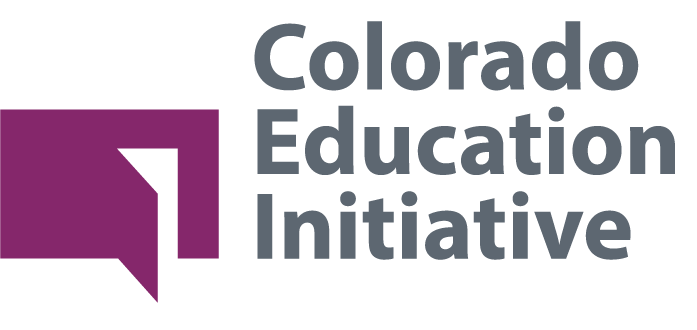New Behaviors from CEI
October 7, 2021
By Rebecca Holmes, CEI President and CEO
In my July message to the field, I reflected on the paradoxes of this moment, noting both lights on the horizon in Colorado in significant open policy windows, and the still-present weight of the last year with pandemic uncertainly still looming. In every conversation, I see evidence of our field toggling between ‘everything is changing’ and the stark reality that people doing the work have short windows for big change that depend on new behaviors. From our work alongside school and system leaders in the last six weeks, our team knows this year is presenting a new set of very difficult challenges. As we sometimes provide the calm in the storm, we believe this moment also demands some new behaviors from CEI.
CEI’s newly approved 2021-2023 goals reflect the major systems implications of this moment and our commitment to bridging the gap between leaders making statewide systems decisions and leaders doing the work in school systems every day. We will remain committed to our implementation work, but will also be amplifying the learning from bold implementation projects in ways that build broader movements to disrupt existing policy barriers. The goals are:
- Colorado school districts equitably, predictably, and reliably produce Running Kid outcomes
- Colorado communities embrace a broader understanding of school quality
- Colorado maximizes the policy and funding opportunities of recovery to enable breakthrough change that drives equity and relevance in high schools
What These Mean for Our Work and Partnerships
The bulk of our work will continue to have us shoulder to shoulder with district and school partners in the field. Particularly given current operational struggles across K12, we will still be supporting districts and communities to maximize stimulus funding for long-term innovation, in partnership with communities, and through learning from peers and exemplars.
Additionally, leveraging current policy windows to rethink accountability and school quality measures will demand more active learning from innovations on the ground. We know traditionally measured academic success is necessary but insufficient and that more comprehensive conversations with communities are needed about the practical benefits and unintended consequences of the current system. The field is ready to move past piloting and past the same longstanding debates to envision broader possibility and purpose. Advancing this work depends on new partnerships and shared urgency for change.
Lastly, we believe Colorado must engage in both practice and policy opportunities to reimagine the high school experience. This will require both continued local innovation and state-level ecosystem shifts. Work-based and out-of-school time learning are two areas ripe to catalyze significant system transformation in the next two years. Both push on current notions of seat time. In addition to CEI’s continued implementation supports, we will be partnering with others to advance work that blurs lines at the intersections of K12, higher education, and workforce to identify system, structural, and capacity changes needed to enable innovation and alignment, particularly at the high school level. Insights from district and school leaders across initiatives and programs will be necessary to make sure state policy work is deeply informed by lived experiences in schools and communities.
Our October newsletter features three short videos from district, advocacy, and state leaders reflecting on these goals and their significance for education in Colorado. I invite you to listen and let us know how we can work together to advance this work in support of your communities and our broader state.
